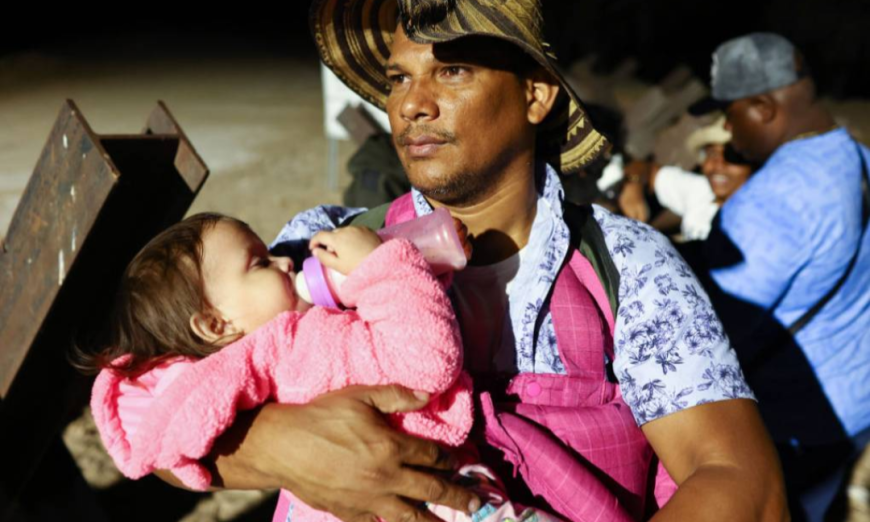SAN DIEGO. President Joe Biden’s administration has promised to offer more legal options for Latin American migrants to come to the United States to be reunited with their families.
As the Biden administration prepares for the end of asylum restrictions related to the COVID-19 pandemic, it is offering some new legal options for people — especially families — to come to the United States.
The administration said it will admit at least 100,000 Latin Americans seeking to reunite with family members in the United States, but it has released almost no details. The plan was announced as restrictions tied to a public health law, known as Title 42, were set to expire Thursday.
Here is a look at the new legal pathway for Latin Americans to join their relatives in the United States:
How would people apply?
During a recent visit to the border city of Brownsville, Texas, U.S. Secretary of Homeland Security Alejandro N. Mayorkas said people would apply for permission to join their families in the United States at regional processing centers. The government plans to open 100 such hubs across the Western hemisphere, with the first ones starting in Guatemala and Colombia.
The centers will handle requests for family reunification parole, Mayorkas said, along with applications for the U.S. refugee program and humanitarian parole for those deemed to be particularly vulnerable, which is decided on a case-by-case basis.
Who will be eligible?
The new family reunification parole program is for immigrants from Honduras, Guatemala, El Salvador and Colombia who are U.S. citizens or lawful permanent residents and who have gotten approval for their petitions to bring over immediate family members.
The U.S. government said eligible people will receive an invitation to participate. The government will provide advance travel authorization for individuals who are approved, and people will be eligible to apply for authorization to work in the United States while they wait for their immigrant visas.

